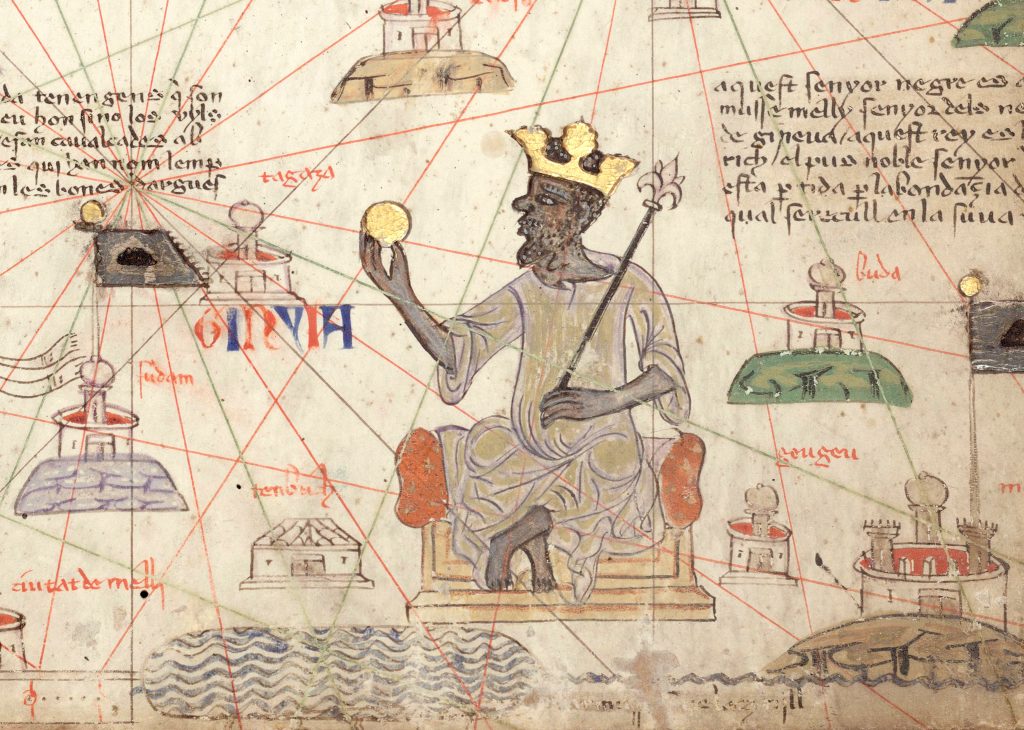Jeff Bezos, Warren Buffett, and Bill Gates are pikers. They may think they are among some of the richest men who ever lived, but compared to a 14th-century African king, they are all flying economy class.
His name was Mansa Mula and he reigned the kingdom of Mali until 1312, overseeing a land that was the source of half of the “Old World’s” supply of gold. And, by the very nature of being the king of all he surveyed, that gold all belonged to him.
A recent estimate done by academics suggests Mula was worth about $400 billion. He once visited Egypt where he gifted them so much gold he crippled the Egyptian economy for decades.
The old king was bequeathed his treasure by birthright, while our new economic titans created their wealth through development of a product or service they monetize to maximum effect.
There seems to be a lot of political discussion these days as to how much is enough. I have never been comfortable with being the arbiter of how much is too much for someone to earn whether they earn $15 per hour or $15 per second.
What Scripture tells us so clearly is not how we get our wealth (other than not getting it by breaking any God-given instructions of human behavior), but what we do with it once we get it.
I don’t know if Mula did charity work with his billions. He apparently did try to rectify the havoc he wrought on the Egyptians, but he also apparently charged them interest for his trouble.
What rich people do with their money is none of my business. Bill Gates and Warren Buffet have declared they are giving most of their fortunes away upon their demise. Good for them, I hope. I say “I hope” because based on language taken directly from the Bill and Melinda Gates Foundation webpage, I have some doubts:
“The Bill & Melinda Gates Foundation’s Family Planning program is working to bring access to high-quality contraceptive information, services, and supplies to an additional 120 million women and girls in the poorest countries by 2020 without coercion or discrimination, with the longer-term goal of universal access to voluntary family planning.”
When G.K. Chesterton engaged in the primordial contraception debates well over a century ago, he mused that those claiming the virtue of contraception because there were too many poor people never seemed to worry that there were too many corporate lawyers, billionaires, or other types on the top of the economic food chain.
And thus, with all contraception proponents, whether it be Planned Parenthood or a philanthropic organization, conversations about contraception quickly and invariably turn toward “reproductive rights.”
I am no credentialed social scientist or economist smart enough to know that if some 14th- century African king knocks on my country’s doors with a gift of economy-altering gold, it would be better to say thanks but no thanks.
Still, I don’t think the problem in the undeveloped world is too many people, but, rather, too many despots in the form of supreme leaders and their host of sycophants who feed from the top at the expense of the masses — the antithesis of a free marketplace, the same kind of free marketplace that made a Bill Gates, Jeff Bezos, or a Warren Buffet even possible.
I’m not singling out rich folks for abuse here, either. We live in the richest country in the world, which makes most of us, even those of us who seem well entrenched in America’s middle class, rich beyond imagination compared to the vast majority of the world’s population.
If you live in a small house or even rent an apartment, have a car, a TV and cell phone, you are a modern King Mula in the eyes of many of your fellow earth-dwellers.
Just as money is not the root of all evil but the love of it is, so too is being rich a benign thing, until we do something good or bad with it. Some of us may not be able to give so much that we can cripple a third-world economy, but I know, at least from what I see in the mirror, we can certainly do more.
Jesus stipulated the poor we would have with us always. The logical progression corresponds that the same holds true about the rich.
Hopefully, the superrich and not-so-superrich can muster more courage to part with God’s bounty and be better stewards this Lent.
Robert Brennan is a weekly columnist for Angelus online and in print. He has written for many Catholic publications, including National Catholic Register and Our Sunday Visitor. He spent 25 years as a television writer, and is currently the Director of Communications for the Salvation Army California South Division.
SPECIAL OFFER! 44 issues of Angelus for just $9.95! Get the finest in Catholic journalism with first-rate analysis of the events and trends shaping the Church and the world, plus the practical advice from the world’s best spiritual writers on prayer and Catholic living, along with great features about Catholic life in Los Angeles. Subscribe now!

